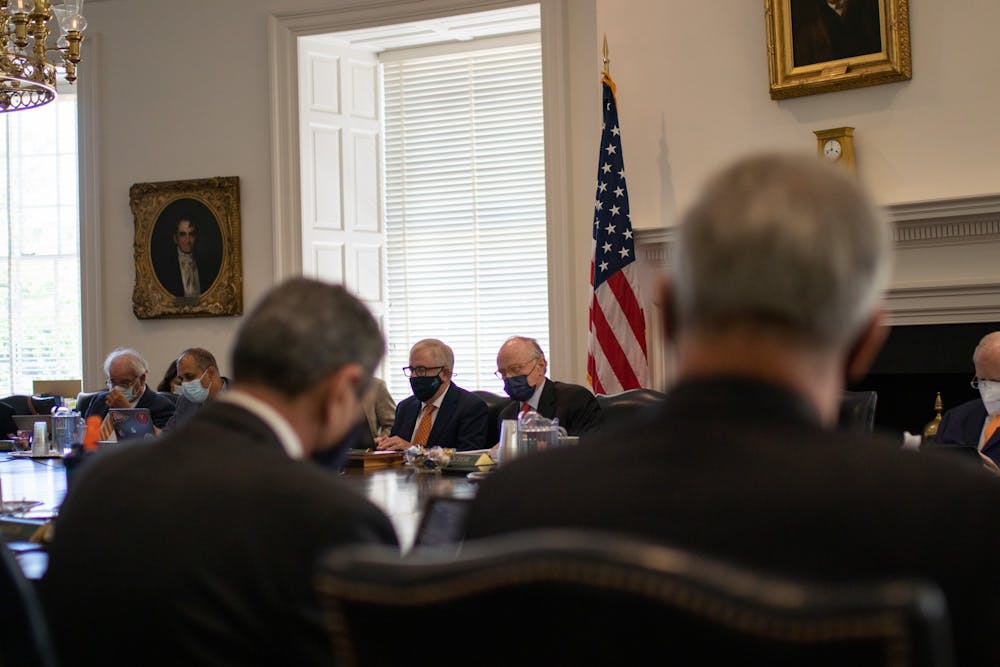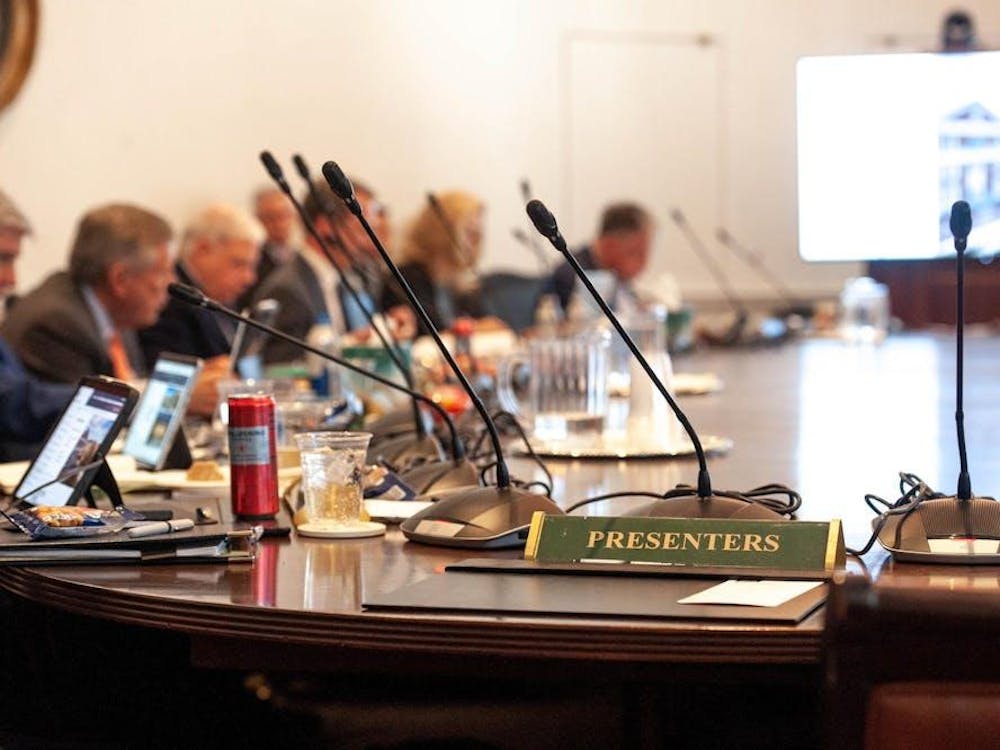The Board of Visitors is the University’s governing body consisting of 19 members, 17 of whom are appointed by the Governor of Virginia and confirmed by the General Assembly. The remaining two non-voting members are a full-time University student and a University faculty member, who are both appointees of the Board itself. The student member currently lacks substantive power as a non-voting member — lobbying is their primary means of influence. Meanwhile, the student body itself cannot vote for who supposedly represents them in Board meetings. This is absurd. The student member of the Board should be elected by the students of this University, not appointed by a Board entirely unable to speak to the experiences of today’s average University student. Once empowered with actual students’ approval, I also believe this student should gain the ability to vote on the Board’s decisions.
For me, the Board is frustratingly undemocratic. The people who vote for Virginia’s governor, by and large, don’t attend the University that appointed Board members thereafter govern. Many out-of-state students cannot even vote for the Governor of Virginia, and many in-state undergraduates were ineligible to vote due to their age, regardless. A minor in high school would have been ineligible to vote in the 2021 Virginia gubernatorial election, yet in a few years, they might attend an institution governed by appointees of that election’s victor. Board members are merely guests with power over the place they visit — and in my opinion, alumni from decades ago do not know what it means to be a University student today, nor do I think they can possibly represent us.
Our current student representative is fourth-year Architecture student Lily Roberts. Allow me to clarify — this article is not about Roberts or any former student representative, but rather, this position and the way students obtain it. Still, let us remember that the student representative still speaks for us at Board meetings. Roberts’ contact information is on the Board’s website, and we should feel free to reach out to her with concerns we want presented at Board meetings, as she has encouraged.
Students already vote for internal governing and judicial bodies each year. Elections for Student Council, the Honor Committee and the University Judiciary Committee define the University’s principle of self-governance. Whether or not that principle truly exists as a result of these bodies, I find the Board is contradictory to said principle. Though it delegates certain responsibilities to students, by denying us the right to vote on our representative, the Board remains in contradiction with itself.
The boards of other Virginia colleges and universities function in ways that could offer potential changes to implement for our Board. Virginia Tech is largely in line with our Board’s student appointment process, though additionally appointing a student from their graduate school, uncommon for Virginia Boards of Visitors. More promising, students at the College of William and Mary see the person they have elected as president of their Student Assembly thereafter appointed to their Board. While this is not a direct election for their board representative, students at least have some say. George Mason University follows a similar system. And most promising of all, students at James Madison University can actually vote for their Board representative — distinct from any other student leader position.
In short, our Board of Visitors has distinctly failed where its counterparts in Virginia higher education have succeeded to more democratically elect the student members of their boards. Part of this discrepancy stems from Virginia law itself, which gives boards leeway over how they select the student to serve. But this also indicates an explicit decision on behalf of our Board to deny students the ability to choose their representative. I personally believe that JMU’s model is the most desirable one within the confines of Virginia law. The student on a given Board should not have the duties of a Board member merely tagged onto another position — say, Student Council president — lumped together. I encourage our Board to replicate this policy.
One part of Virginia law regarding Boards of Visitors that our state government must amend is its decree that students remain non-voting members. For those institutions at or edging toward democratic elections for this member, ultimately denying them the right to vote on the Board is a slap to the face of their student bodies. This change to the law will not likely arise unless appointed Board members actually take this concern to Richmond — to that governor position that appointed them.
The University's Board can act without Richmond, though, in re-establishing its student member as an elected position. In fact, I would even encourage the Board to increase the number of student members once this change is made. This would connect it to University students in a way it simply has never been. The Board will be an outdated institution until it finally becomes a thing of the past, but I demand the Board finally let students select their representative in the meantime.
Bryce Wyles is an Opinion Editor for The Cavalier Daily. He can be reached at opinion@cavalierdaily.com.
The opinions expressed in this column are not necessarily those of The Cavalier Daily. Columns represent the views of the authors alone.







